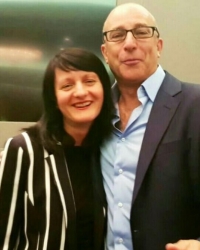Generation Z and Generation Alpha: our future
Our Generation Z (born 1995 to 2010) now aged 10 to 25 years, and Generation Alpha (born 2010 to 2025) now aged 9 to 12 years are our futures.

Generation Z also known as 'Zoomers' and 'digital natives' are the first social generation to have access to the Internet and portable digital technology. Generation Z tend to be more well-behaved, more risk-averse, and live slower than previous generations.
They are more concerned with academic success and career prospects.
They also have fewer teenage pregnancies and use less alcohol and drugs. The only contrary to this is an increase in sexting. This is a real concern.
Generation Alpha are mostly the children of Millenials. Their entertainment lifestyles are dominated by streaming services and smart technology. An increase in obesity, allergies, and health problems amongst this generhas been associated to an increase in screen time.
Generation Alpha has been significantly impacted and affected by the Covid-19 Global Pandemic. Social commentators have cited that this generation will be the wealthiest, the best educated, and the most technologically adept. They are also the generation that will live in more blended families, rather than living with both biological parents under the same roof.
It is vital that we support, nurture, care, encourage, and build all of our children, no matter who they are, when they were born, and where they are from. We can build the best foundations for them on which they can progress and build their own futures. We can build on their strengths, and develop other areas to create full amd well-rounded young adults.
I have worked in schools with teenagers and young people for over 25 years now. Over this period times have changed, especially more recently with the global pandemic and the issues and problems that young people face have become more serious and severe.
I would say there have been two significant changes:
1. The global pandemic has created a deeper sense of fear and uncertainty, and an increase in the onset of anxiety, and depression for our children.
2. Depression, acute anxiety, self-harm, and suicide rates have increased in the last two years.
Over the years trained professionals and clinical hypnotherapists have worked with many young people and their families to:
- ensure issues and problems are resolved easily and swiftly
- build resilience and motivation
- construct confidence and self-esteem
- create and improve mental wellbeing
- eradicate anxiety and depression
- eliminate stress, panic and fear
- work on mental health issues and disorders such as eating disorders, self-harm, self-sabotage, and more.
- resolve issues relating to trauma, including PTSD
- addiction recovery: alcohol, drug, gambling, and more...
So how can we help our young people?
1. We all have a duty of care to all children and young people.
2. Safeguard children and vulnerable adults: processes and procedures; Know who to report to and the steps to be taken.
3. Equality and diversity training.
4. Health and safety.
For further information check out your government guidelines:
UK: www.gov.uk
USA: www.state.gov
European Union: www.european-union.europa.eu
If you work with, or have your own children, or young relatives, check in and talk with them regularly. It sounds simplistic, even condescending, yet it is so important in today's society and world.
These days children spend countless hours on social media, alone in their bedrooms, isolating themselves from the outside world, and living a virtual life online.
Although this has many advantages and enables our young people to learn many new skills within technology, the adverse affects of this is that our children may lack opportunities to develop social skills, and other far-reaching life skills such as communication, empathy, and so on.
I look forward to meeting more of you soon, and helping your family, your children, and your communities. Thank you.

Find the right hypnotherapist for you
All therapists are verified professionals
